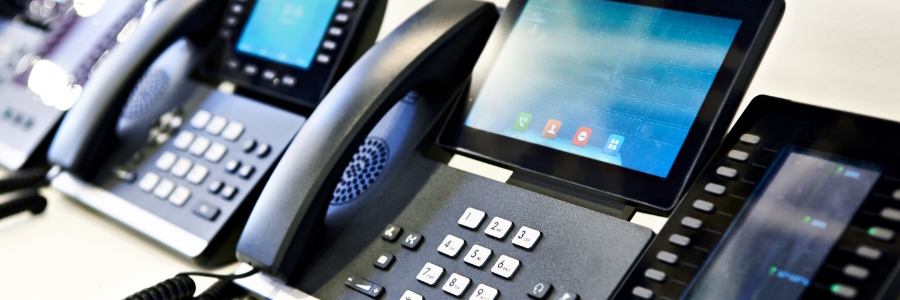If you’re looking for ways to improve efficiency and cut costs, then you may have already made the switch to Voice over Internet Protocol (VoIP). But have you considered using an AI-powered VoIP system? The difference between traditional VoIP and AI-powered VoIP is that the latter uses artificial intelligence (AI) to help provide a better user experience.
Everything you need to know about VoIP softphones and hardphones

With many businesses switching to a remote or a hybrid work setup, managers are thinking about the most ideal VoIP phone solution for their teams. They have the option of using VoIP softphones or hardphones. If you too are thinking of switching to VoIP, read on to find out everything you need to know about VoIP softphones and hardphones.
5 Handy tips to combat VoIP eavesdropping

Voice over Internet Protocol (VoIP) phone systems allow users to communicate with others over an internet connection, but cybercriminals can intercept the data transmitted between two callers. This cyberattack is known as eavesdropping, and there are certain things you need to do to defend against it.
The business benefits of unified communications
VoIP Quality of Service: What you need to know when choosing a provider

More businesses are making the switch to Voice over Internet Protocol (VoIP) because of its many benefits, which include lower costs, scalability, and flexibility. But with so many VoIP providers and packages to choose from, how do you know which one is right for your company? One important factor to consider is the Quality of Service (QoS) offered by a provider.
5 Important steps for safe and successful UC migration to the cloud
Theft of service: The dark side of VoIP
Top 5 benefits of using softphones

With remote work becoming crucial to business survival, it's more important than ever for companies to have a reliable communication system. One option is to issue company phones to remote workers so they can communicate with clients and colleagues. But the ideal solution for most businesses is to use phone apps or softphones, and here are five reasons why.
Here’s how to benefit from VoIP’s on-hold messages

For many customers, being put on hold in a call can be annoying. Some may even get frustrated and just hang up. Instead of keeping your business’s callers waiting without anything to do, why not have them listen to useful information that keeps them engaged? With a Voice over Internet Protocol (VoIP) system, doing this is pretty simple.
Is Microsoft Teams or Google Meet better for your business?

Today, there’s no shortage of online communication tools for businesses to choose from, but Microsoft Teams and Google Meet are the clear winners in terms of functionality and ease of use. Choosing between the two platforms can be a challenge, as both offer a robust set of features that make business communications more efficient and convenient.




